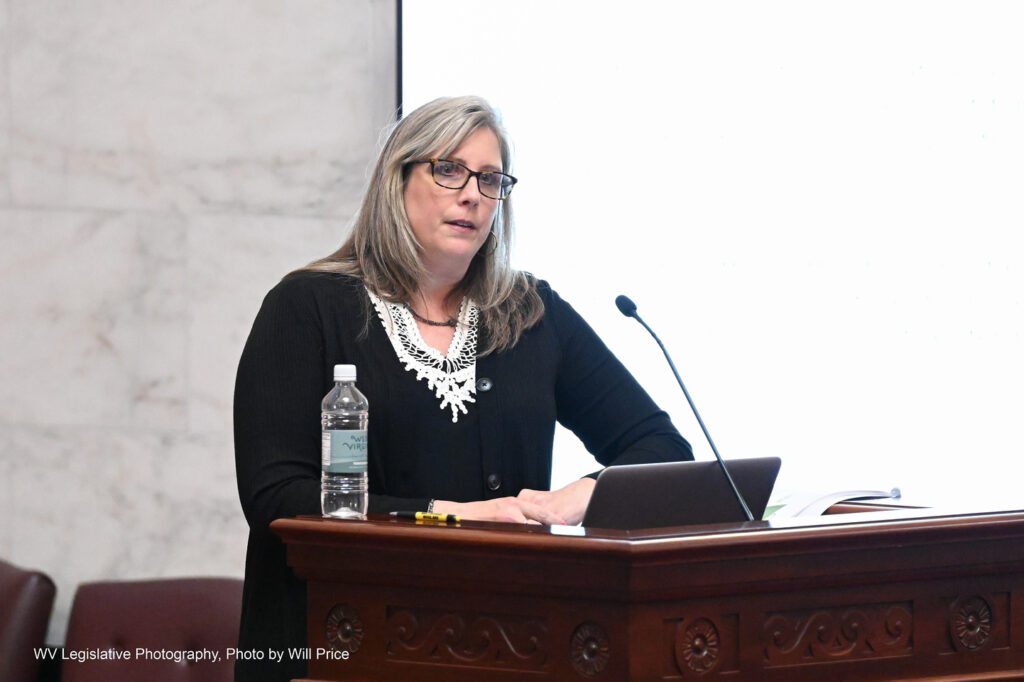The West Virginia Board of Risk and Insurance Management (BRIM), a state-run insurance program, may experience significant shortfalls if the state legislature doesn’t step in to help — all because of a change to the statute of limitations on child sex abuse crimes. That’s according to testimony from the agency’s director at last week’s Joint Committee on the Judiciary during the April interim meetings of the West Virginia Legislature.
In 2020, the legislature passed House Bill 4559 that increased the civil statutes of limitations for child abuse from 22 to 36. This allowed victims to come back years afterward and sue.
The Miracle Meadows School was a nonprofit Seventh Day Adventist boarding school for children with behavioral issues due to trauma. It was open from 1987 to 2014. A police raid in 2014 revealed children handcuffed in “isolation” rooms as well as dozens of other claims of abuse.
The school was insured by BRIM.
In the years that followed, 27 children sued the school and won a $52 million settlement — the state was responsible for $27 million.
At a recent legislative interim meeting, Melody Duke, BRIM’s director, said up until that point, the school was a “good entity” and their loss ratio was low, meaning they had few claims and paid their premiums.
The 2020 changes to the statute of limitations have opened the doors for many more children who suffered abuse at the school to bring similar suits.
“We have over 110 claims currently pending for individuals who have brought claims,” Duke said. ”It’s opened up from 20 to 36, allowing them to come back and file. And that was funding we do not have because when we collected premiums, that exposure was not there. The statute of limitations when we collected the premium back in those years, was able to end at 20.”
The school went out of business in 2014, so BRIM can’t go back and collect premiums, nor can the agency collect premiums from the other nonprofits since it is outside of the five-year range.
In her explanation of the problem, Duke said that different groups BRIM insures are kept in silos — one for boards of education, one for nonprofit agencies, for example.
Sen. Patricia Rucker, R-Jefferson, questioned where the money for large payouts comes from.
“What concerns me is we are backing these up with tax dollars,” she said. “Even though you do separate it into different categories, when you guys have to do a huge settlement, when we have some of these nonprofits causing us a major loss, we have to back it up.”
Duke explained that is the first time, by her understanding, that something like this has occurred.
“We feel that some of this is from a development of the statute of limitations change, because that has exacerbated the situation because all these individuals are now able to file claims because they’re over 20, and then to the age of 36,” Duke said. “That’s premium and exposure that was not being able to be collected back in 2014. If that statute had been there, then my actuaries would have helped me to build, to determine premiums that were adequate, hopefully, to fund that.”
Sen. Mike Azinger, R-Wood, also asked Duke what the legislature will need to do to offset these potential settlement losses from the new round of 110 claims against the school. If any settlement follows the earlier round of payments to the 27 students, the state might be liable for more than $100 million.
“I was able to transfer some excess revenues from that program to the non-state program. That’s going to help me, hopefully, to get through this fiscal year to pay hopefully some of these other claims, the 110 claims I mentioned, but as I’ve got more concrete dollars, I’m going to need some funding to be able to pay those settlements,” Duke said. “The reserves that I have in my non-state program are for everybody in the non-state program. They are not just for one particular entity. I’d be remiss if I used all of my excess money for those payouts. We’ll be looking to the legislature to hopefully maybe get an appropriation to be able to fund those losses.”




















